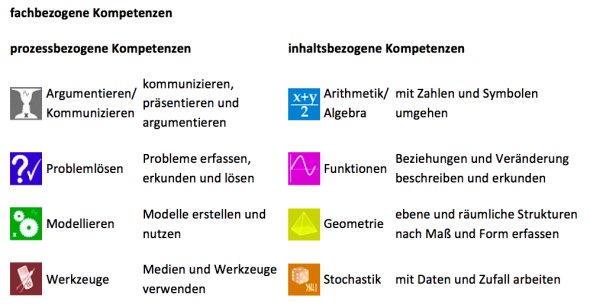The core curriculum of the state of North Rhine-Westphalia stipulates that pupils in mathematics lessons must
- Perceiving and understanding phenomena from nature, society and culture with the help of mathematics (mathematics as an application)
- understand mathematical objects and facts, represented in language, symbols and images, as intellectual creations and develop them further (mathematics as structure)
- acquire and apply interdisciplinary skills in dealing with mathematical issues (mathematics as a creative and intellectual field of activity).
This basic mathematical education is achieved through the interplay of subject-related competencies, which are divided into process-related and content-related competencies:


To teach these skills, we work with mathewerkstatt. In combination with the materials kit, the textbook offers pupils the opportunity to experience mathematics in an active way. Furthermore, the topics are always linked to subject areas from the pupils' everyday lives. In this way, mathematics can be understood and explained as an application for the pupils.
We take a five-step approach to developing content and topics and acquiring the relevant skills.
In the first step, the introduction, the pupils are introduced to the topic and the key questions.
In the second step, students explore problems, find their own solutions and work out connections.
The findings are then systematized and arranged in the knowledge repository.
In the deepening step, knowledge is repeated, practiced, linked and expanded. Pupils can work at different levels here.
At the end of a topic, students can check the knowledge and skills they have acquired using the checklist and prepare for the learning checks.
Working on the checklist often takes place in the learning office lessons and supports the pupils in the process of working independently.